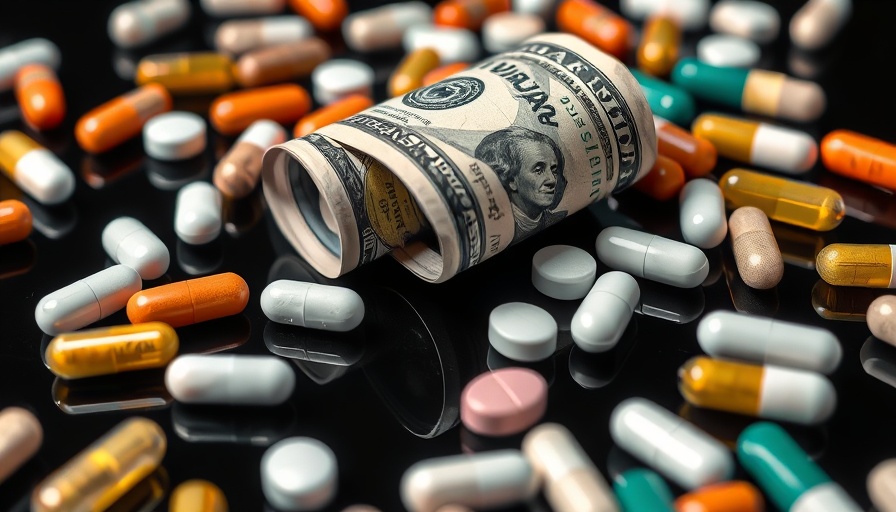
Trump's Bold Move to Tackle Prescription Drug Prices
In a decisive step to address rising healthcare costs, President Donald Trump announced his intention to sign an executive order aimed at significantly reducing prescription drug prices. According to Trump, this initiative could lower costs by an astonishing 30% to 80% for American consumers. Set to be officially unveiled on Monday, Trump's proposal underscores an urgent desire to reform the healthcare landscape in the United States.
Understanding the Most Favored Nation Policy
At the heart of this executive order is the concept of a "Most Favored Nation Policy." This policy would ensure that the United States would pay no more than the lowest price paid by other countries for the same medications. Trump emphasized this approach as a means to bring fairness to American consumers, claiming that it would level the playing field in global pharmaceutical pricing. With rising healthcare costs affecting many Americans, this proposal aims to provide quick relief to patients burdened by high medication prices.
The Bigger Picture: Comparing International Drug Prices
Globally, there is a growing disparity in drug pricing that has sparked debate among economists and healthcare professionals alike. For instance, a cancer drug that may cost a U.S. patient thousands might be available for a fraction of that price in countries like Canada or the UK. The executive order could be a significant step towards rectifying these inequalities at a time when many are feeling the financial squeeze due to higher healthcare costs.
Historical Context: Drug Prices in the U.S.
The issue of prescription drug pricing has persisted for decades. Many Americans believe that they are paying excessively high prices compared to their counterparts in other countries. According to recent studies, U.S. drug prices have historically been among the highest globally, leading to calls for reform. This executive order marks one of the most significant attempts by a sitting president to directly intervene in this ongoing issue.
Public Reactions and Potential Implications
As Trump prepares to sign the executive order, public sentiment remains mixed. While many Americans who struggle with the high costs of medications view the move as a potential saving grace, critics warn that implementing such policies could have unintended consequences—such as pharmaceutical companies reducing research budgets or re-evaluating their presence in the U.S. market.
The Investors’ Angle: Impact on Healthcare Stocks
As the announcement looms, investors in healthcare stocks are closely monitoring the situation. Historically, when significant healthcare reforms are introduced, they can lead to fluctuating stock prices within the sector. Investors might want to consider this development in their portfolio diversification strategies, especially those focused on healthcare stocks, mutual funds, or ETFs that align with sustainable investing principles.
Expert Opinions and Analysis
Healthcare experts have weighed in on the proposal, suggesting that while the move is commendable, it will require careful implementation to avoid backlash from the pharmaceutical industry. Richard Smith, a healthcare economist, states, "While families need relief from drug costs, it is crucial that we ensure that pharmaceutical innovation is not stifled in the process. Policy makers must find a balance that fosters fair pricing without jeopardizing continued development of new medical treatments." This perspective highlights a critical tension in public policy decisions affecting the pharmaceutical sector.
Preparing for the Impact
As we await further developments, it is imperative for consumers to educate themselves on the potential changes and the implications for their personal healthcare expenses. Understanding the nuances of drug pricing and remaining informed on the potential benefits of the executive order will empower individuals to make better healthcare decisions in the coming months.
In conclusion, President Trump's impending executive order on prescription drug prices has the potential to reverberate throughout the healthcare system, impacting not only consumers but also investors, pharmaceutical companies, and policymakers. As we await the official signing, the conversations surrounding healthcare affordability continue to heat up.
 Add Row
Add Row  Add
Add 



Write A Comment